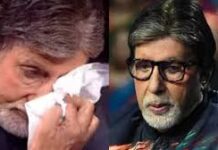THE sole Marshal of the Indian Air Force, Arjan Singh, passed away at the Army’s Research and Referral Hospital on Saturday evening, hours after he had been admitted there following a cardiac arrest. He was 98.
An officer who shaped the IAF in its early years as well as during some of its most difficult junctures, Arjan Singh had the honour of leading the fly-past of more than a hundred IAF aircraft over the Red Fort on India’s first Independence Day, August 15, 1947.
In 2002, on the occasion of Republic Day, he was granted the honorary rank of Marshal, the highest military rank attainable, which before him only two Army chiefs, K M Carriappa and Sam Manekshaw, had achieved.
Born on April 15, 1919, in Lyallpur (now in Pakistan) to a family of soldiers, Arjan Singh joined the nascent IAF in 1938 after completing his education from the Government College at Lahore. He was commissioned from the Royal Air Force College at Cranwell in the UK in December 1939. As a Pilot Officer posted in Karachi, he participated in operations against the tribals in the North-West Frontier Province (NWFP).
The highlights of his early career were the two operational tenures on the Burma Front during the Second World War, first as a Pilot Officer with Tigers Squadron and subsequently as the Commander of the same Squadron. As a consummate Squadron Commander, flying Hurricane fighters in defence of Imphal in 1944, beseiged by the Japanese, he had displayed masterly leadership. In an unprecedented step, the then Supreme Allied Commander of the South East Asian Command, Lord Mountbatten, had personally awarded him the Distinguished Flying Cross on the battlefield for his leadership and performance in defeating the Japanese.
Arjan Singh held many important posts in the IAF before taking over as Air Marshal in August 1964. The Pakistan Air Force was led by his batchmate from Cranwell, Air Marshal Asghar Khan, at the time. During the skirmish at Kutch in early 1965, the two chiefs had established contact and agreed on keeping the two air forces out, to prevent any inadvertent escalation. But once Pakistan had launched Operation Grandslam to cut off Jammu and Kashmir from the rest of India by launching a military attack in Akhnoor in September 1965, the then army chief, General J N Chaudhuri, had met him at Vayu Bhawan and suggested that the Pakistani assault would best be stopped by the IAF.
Arjan Singh and Chaudhuri had then gone to meet the defence minister, Y B Chavan, who famously gave them the go ahead. As Arjan Singh later recounted, “Pakistan had a qualitatively superior force that included modern fighters such as F-86 Sabres and F-104 Starfighters. The Indian Air Force had Mysteres, Vampires, Ouragans, Hunters, and Gnats in its inventory. We were fighting against all odds as they had air-to-air missiles and we just had a few Russian MiGs that were not used much in the war.”
In the subsequent weeks though, the IAF had established its air superiority, with deep-penetration attacks against enemy targets, including the farthest Pakistani airfields like Peshawar and Mauripur.
Arjan Singh continued to believe that the 1965 War ended in a stalemate despite India being in an advantageous position. “When the talk about ceasefire started, I had advised Shastriji (Prime Minister Lal Bahadur Shastri), who was under enormous international pressure, against accepting it,” he later recounted. “On the other hand, Pakistan was losing its aircraft at a fast rate and was keen on accepting the ceasefire. However, because of international pressure and other considerations, India agreed to the ceasefire.”
For his meritorious services during the 1965 Indo-Pak War, Arjan Singh was honoured with the Padma Vibhushan. On January 15, 1966, he became the first officer of the IAF to be promoted to the rank of Air Chief Marshal, at par with a General.
He continued to serve the country in various capacities even after retirement in July 1969. In 1971, he was made India’s Ambassador to Switzerland and in 1974, the High Commissioner to Kenya. He also served as a member of the Minorities Commission and as the Lt Governor of Delhi.
Prime Minister Narendra Modi, who visited Arjan Singh in hospital on Saturday, mourned his death. “We remember his outstanding service to the nation,” he said.















